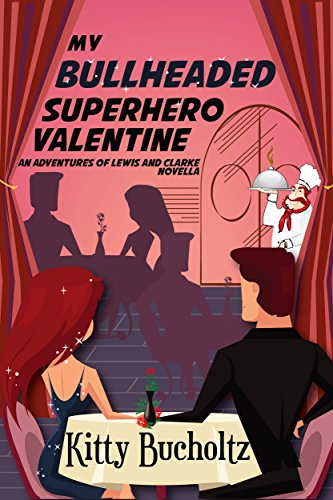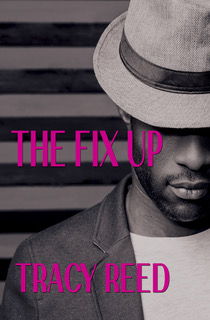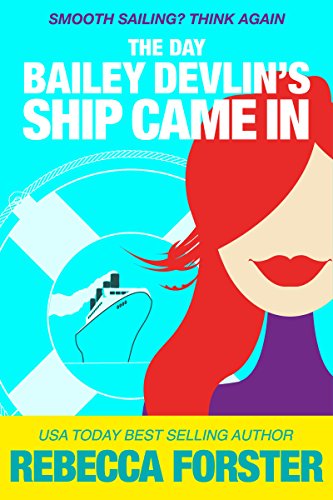Racial Bias in Fiction by Kidd Wadsworth
March 18, 2020 by Kidd Wadsworth in category Infused with Meaning by Kidd Wadsworth
When I sent my first novel to a beta reader, she flagged several passages, including the one below, as “racist.” The brickwork discussed in this passage still stands at Fort Gaines—built in 1821—on Dauphin Island off the coast of Alabama. My intent had been to convey my respect and admiration for the craftsmanship of the slaves who laid the bricks. After receiving my beta reader’s comments, I rewrote the passage to both remove the bias and to focus the narrative on one of the main themes of the book which is: truly seeing the many choices in front of us and choosing the right path. Lloyd is African-American and Anthony (the speaker) white. Both are twelve years old.
The Original Passage:
We inspected the fort’s buildings, the bakery, the latrines, and the armory. “Hey, these were built by slaves,” Lloyd said, reading a plaque.
“Yup, look at that arch.” I (Anthony) pointed upward at the gorgeous brickwork. “Dad took me here when I was five. I remember him holding me up, showing me this brickwork saying, ‘Son, you’ve got to respect a man who does an excellent job, even when he’s a slave. He didn’t get paid, in fact he probably got whipped, but he did a good job anyway, obviously took pride in his work’.”
Rewritten to (hopefully) more accurately portray Lloyd and the African-American experience:
We inspected the fort’s buildings, the bakery, the latrines, and the armory. “Hey, these were built by slaves,” Lloyd said, reading a plaque.
“Look at that arch.” I (Anthony) pointed upward at the gorgeous brickwork. “Why do you suppose the slaves did such a good job? If I’d been a slave, I would have died rather than build my master a fort.” I drew my knife. “I’d have taken some of them with me, too.”
Footsteps came our way. Quick, I sheathed the knife and pulled my sweats down over it. Two little kids, one chasing the other, raced by.
Lloyd ran his hand over the curving side of the archway. “My daddy told me that slavery wasn’t homogeneous.”
“You mean like milk?”
“No, that’s homogenized.”
“Oh.”
“What he meant was that each person experiences slavery differently. One person might escape. Someone else might get depressed and never want to do anything.”
“Are we still talking about bricks?”
Lloyd gave me a mean look. “My daddy had a boss that always took credit for my daddy’s work.”
“Why didn’t he complain to the boss’s boss?”
“They were brothers.”
“He should have quit.”
“He couldn’t quit. He needed the money. So, he decided to keep doing the best job he could.”
“Why? That was just playing into his boss’s hand.”
Lloyd shook his head, “Don’t you see? It wasn’t about his boss. That’s what my daddy figured out. He could choose who he worked for. So, he decided to work for God.”
“What?”
“Anthony, I don’t know why those slaves did a good job. But I guess I’m hoping that they did it for God.”
“Lloyd, these bricks were laid in 1821. All those slaves probably died slaves. They were never freed, they never even got paid, and their masters got all the credit.”
“Did they?”
I glanced over at him.
“The Old South is gone, Anthony. But hurricane after hurricane this fort has survived.”
I looked again at the beautiful brickwork.
Lloyd whispered, “Maybe God did see.”
Your comments and suggestions are welcome. I’d like to get this right.
10 0 Read moreThe Opening Image
February 17, 2020 by Kidd Wadsworth in category Infused with Meaning by Kidd Wadsworth tagged as emotions, Opening Scene, Save the Cat! Writes a Novel, Story Genius, Your First 1000 CopiesEmotionally Connecting with Your Readers
Kidd Wadsworth
I have three go to books on my writing shelf: Story Genius by Lisa Cron featured in my first blog post, Your First 1000 Copies by Tim Grahl and Save The Cat! Writes a Novel: The Last Book on Novel Writing You’ll Ever Need by Jessica Brody. Yes, I’ve got other writing books, hundreds, but these three are the superheroes, the Avengers, of writing books.
Save The Cat! is about pacing. An expectation, of what will happen when, has been created in readers by television and movies: the sidekick should be introduced in the first quarter of the novel; at the midpoint someone will die; etc. Yes, you can break these rules, if you’re good, very good, but if you follow them, your novel will tend to be more readily accepted by agents and readers alike. The Save the Cat! formula begins with a single scene, an opening image, which should establish an emotional connection between the reader and your protagonist. Below is the opening image to my novel The Dream Seer. Your comments are earnestly solicited. If I don’t get this right, I’ll lose the reader on the first page.
*
I woke with a Cottonmouth hissing and coiling in my gut. The California sun shone all bright through my window—right into my eyes. Outside, in a tree, a little yellow bird decided to serenade me, chirping out happiness. I pulled the covers over my head.
Dad hadn’t called, not for three days. He always called. We had a standing breakfast Skype appointment. Grandfather would even set place for Dad at the table. If he fixed banana pancakes—Dad’s favorite—he’d make an extra stack and sit them right in front of the computer screen where Dad could see them, just to let Dad know that we were thinking about him.
Dad would look oh-so-longingly at those pancakes and say, “Thanks.”
Grandfather said Dad’s mission had probably gone long or the base was on a communications blackout. Guess that had to be it. I mean, everyone knows that its practically impossible to kill a Navy SEAL. SEALs are the most highly trained soldiers in the whole world.
Big feet moseyed down the hallway and into my room. Grandfather gave my hammock a swing. “Time to get up, sailor.”
Underneath the blanket my hands curled into fists.
“Hmmm…, Grandfather said. “I see.”
I didn’t know what he was seeing, but a lump of covers.
“Would you like to talk?” he asked.
“About what?”
“I’m here for you, son.”
“Don’t you need to be fixing breakfast?”
Through the covers he kissed my forehead. Then his footsteps headed for the kitchen. Soon enough came the sound of whistling and a spoon hitting the side of a mixing bowl.
Ding. Must have been heating syrup in the microwave.
I reckoned it was no use. I had to get up, and I had to go to school. That’s what it’s like when all the men in your family are in the Navy. You grow up knowing you’ve got to follow orders, even if nothing about the world makes you want to be living in it.
*
Tell me, do you want to read more?
Ping Pong by Kidd Wadsworth
January 18, 2020 by Kidd Wadsworth in category Infused with Meaning by Kidd Wadsworth tagged as colliding worlds, tragic, writing
Author’s Note: In this piece I am trying to juxtapose two elements: one happy, another tragic. I want the reader to be tossed back and forth, knowing that these two worlds are about to collide. BTW this is a true story.
Ping Pong
Green never took on as many shades, or the Earth appear as lush, as in the summer of ‘92 in Ann Arbor, Michigan. Windows down, radio up, I drove, my newly minted sister-in-law in the seat next to me. I’d been married a blissful eight weeks. We’d eaten lunch at Red Hot Lovers, a delightfully greasy hot dog joint. I had the dregs of my Sprite in my cup holder, and she the last of her Diet Coke in hers.
Slowing, I came to a stop behind a sedan waiting to turn out into traffic.
We jammed to the beat, hands in the air.
Filling the crowded sedan were four Arab men in robes and two women in hijabs. One woman sat in the middle of the front seat, the other in the back on the right.

I drank the last of my Sprite.
The sedan driver turned yelling, pointing his finger. The woman in the backseat threw open the door. The man beside her, pulled her across his lap as she tried to escape. She thrashed against him. The second man in the backseat grabbed her. Her fist hit the back windshield. Her legs pummeled the first man as he reached out and slammed the door shut. The sedan, wheels squealing, sped out into the traffic. A car honked; another swerved.
I clenched the steering wheel, shaking.
As the sedan disappeared around a bend in the road, she whispered, “Did you get the license plate?
“No.”
“The car was white.”
“It’s going east on…” Frantically, I searched for a street sign. “what road is this?”
“I think it was a Chevy? Maybe a BMW?”
*
0 0 Read moreThe Winking Book by Kidd Wadsworth
November 18, 2019 by Kidd Wadsworth in category Infused with Meaning by Kidd Wadsworth tagged as forgiveness, healing, Pain, regret
The book winked at me; the title something like Curing Your Back Pain Without Medication. I was desperate. I couldn’t stand up straight, couldn’t walk without pain, couldn’t get out of bed without pain, couldn’t sit without pain…for twenty years I’d been in pain…
Sitting in the library—the wooden chairs were without cushions; I’d be able to stand back up—I read…
Most back pain wasn’t caused by disks or bulges but by one or more strong negative emotions. The author listed five: Regret, Shame, Rage…
I stopped reading.
Rage.
I’d gone to a back-specialist years before. He’d shown me my x-rays. Pointed out my problem. Then he’d said something very curious, “I’ve seen patients with x-rays far worse than yours who are pain free.”
Was it possible that my rage was causing my pain? Years before I would’ve “raged” at that idea. Me? I’m not the cause of this! This is physical! See, look at the x-rays! But so many doctors later, I wanted the cure to be within my own grasp. You see, if I was causing my pain, I could also stop it.
I followed the author’s recommended procedure. I journaled about my rage. I mentally imagined going down into my rage basement and cleaning it out. I opened the basement windows, let in the fresh air.
Nothing worked.
Why would it? I’d been wronged by another person. Horribly wronged. I tore up the journal. Returned the book to the library. It had only made me angrier.
I began to walk along a well populated trail not far from my home. As I walked, I raged at God. After all, he, being the ultimate authority, was responsible for the hurt I had suffered at the hands of another. I don’t know what the other people along the trail thought of me, shouting up at heaven—I do not rage silently—but I am now quite well known by those who walk there.
After three months of this raging, as I returned from the trail to my truck, I recalled an incident where I had hurt the person who was responsible for my rage—the person who had hurt me.
Tired from my walk, on that wonderfully crisp fall day with the dead leaves crunching under my feet, I realized how terrible my words had been, how much pain they must have caused. I also realized that I never wanted to hurt another person as badly as I’d been hurt. I returned home and wrote a letter apology. Of course, that letter was quite difficult to write. I tended to digress…
“I am sorry, but you did this to me!”
Many crumpled sheets of paper later, I finally had a letter which only said “I’m sorry.” It did not blame the other person, or call to mind any other incidents—of which there were many. It did not speak of my pain, only the pain I may have caused. I sealed the letter, mailed it, and forgot it. After all, I knew this awful person I was apologizing to. I knew not to expect anything.
A week later I received in the mail a handmade envelope. Inside was a letter, written in ink without a single mistake. It said many things, but mostly it said, “I’m sorry, too.”
As I read that letter my pain disappeared. Occasionally, I wrench my back. But then I rest and the pain goes away. The weeks and months of pain are gone. I’m free. I’ve been free now for ten years. The pain left with the rage. I’m writing this to you, because that winking library book helped to heal me. It set me on a path which gave me back my life. It was a non-fiction book, but fiction is the same. It heals, because the stories we tell enable others to learn, to navigate this difficult life. Write. I swear, inside you is the medicine for a thousand wounds.
Trash Day by Kidd Wadsworth
October 18, 2019 by Kidd Wadsworth in category Infused with Meaning by Kidd Wadsworth tagged as humor, trash day
My neighbor, Sterling, complains. It seems I don’t bring my trash cans up promptly. But hey, I’ve got a life, and they’re TRASH CANS!
I’ve got a big brain, too. One morning as I watched Sterling take his trash to the curb and leave for work, I got an idea, a how-the-Grinch-stole-Christmas-idea. I grinned and patted my little dog on the head.
As the garbage truck rounded the corner, I ran down to the curb and drug my neighbor’s still-full garbage cans back up his driveway. When the truck had passed by, I drug them down again.
That evening, eager to see Sterling’s expression, I left work early and returned to find him standing at the curb gazing bewildered at the trash still in his trash cans while mine, and everyone else’s, were clearly empty. The next week he put his heaping cans at the curb. Quickly, I once again, hauled them back up his driveway, returning them to the curb when the garbage truck had passed.
That night his shouting rocked the neighborhood. “No, they’re not picking up my trash! It’s been two weeks! 110 Paxinosa Avenue!” I felt sorry for the trash guys. Well—almost.
The next week he had two cans full of trash and three extra bags. It was a trash party! I crossed my fingers, praying he wouldn’t wait around for the truck. He paced on the sidewalk, but after several glances at his cell phone he got in his light blue Prius, and drove away. I’d barely gotten the trash up his driveway when I heard the truck pull around the corner. On a hunch, I stowed the cans inside his garage and snuck out the back gate.
Wow, talk about dedicated. Those garbage guys actually walked up his driveway and looked around for the cans. They clearly had a note in their hands. They checked his address. Knocked on his door. All this for trash. Impressive.
When they left, I put the cans and the bags at the curb. Took two trips. That night a volcano erupted next door. I felt a little guilty—not a lot guilty—but a little guilty. I mean, I felt guilty in between giggles.
On trash day eve, nightmares of my neighbor assaulting me with a garbage can lid and a turkey bone rocked my sleep. I woke bleary eyed, to see my neighbor standing at the curb, surrounded by trash. I decided it was time I fessed up. About then the garbage guys arrived. I ducked behind my window curtains. It was ugly! The shouting, the claims of innocence, “There was no trash!” Shall I speak of the birds shot in the air, the words beginning with…well you get the picture.
About a week later, my neighbor had a backyard barbeque. I brought beer. There were four of us neighbors (right, left and across the street), beers in hand, feet on Sterling’s brick retaining wall, when Sterling told the story.
“No?”
“Really?”
I thought no one knew. But everyone has windows facing the street. When Sterling went inside for more chips, Frank winked at me. Mark held out his hand. “Fifty, or I tell him now.”
I paid.
*
Occasionally, I try humor. Let me know if I got it right.
Affiliate Links
A Slice of Orange is an affiliate with some of the booksellers listed on this website, including Barnes & Nobel, Books A Million, iBooks, Kobo, and Smashwords. This means A Slice of Orange may earn a small advertising fee from sales made through the links used on this website. There are reminders of these affiliate links on the pages for individual books.
Search A Slice of Orange
Find a Column
Archives
Featured Books
MY BULLHEADED SUPERHERO VALENTINE
Maybe just one night out won’t hurt.
More info →THE DAY BAILEY DEVLIN’S SHIP CAME IN
Oh, Boy! Oh, Bailey!
Just when you think it's going to be smooth sailing, Venus messes with your rudder.
Newsletter
Contributing Authors
Search A Slice of Orange
Find a Column
Archives
Authors in the Bookstore
- A. E. Decker
- A. J. Scudiere
- A.J. Sidransky
- A.M. Roark
- Abby Collette
- Alanna Lucus
- Albert Marrin
- Alice Duncan
- Alina K. Field
- Alison Green Myers
- Andi Lawrencovna
- Andrew C Raiford
- Angela Pryce
- Aviva Vaughn
- Barbara Ankrum
- Bethlehem Writers Group, LLC
- Carol L. Wright
- Celeste Barclay
- Christina Alexandra
- Christopher D. Ochs
- Claire Davon
- Claire Naden
- Courtnee Turner Hoyle
- Courtney Annicchiarico
- D. Lieber
- Daniel V. Meier Jr.
- Debra Dixon
- Debra H. Goldstein
- Debra Holland
- Dee Ann Palmer
- Denise M. Colby
- Diane Benefiel
- Diane Sismour
- Dianna Sinovic
- DT Krippene
- E.B. Dawson
- Emilie Dallaire
- Emily Brightwell
- Emily PW Murphy
- Fae Rowen
- Faith L. Justice
- Frances Amati
- Geralyn Corcillo
- Glynnis Campbell
- Greg Jolley
- H. O. Charles
- Jaclyn Roché
- Jacqueline Diamond
- Janet Lynn and Will Zeilinger
- Jaya Mehta
- Jeannine Atkins
- Jeff Baird
- Jenna Barwin
- Jenne Kern
- Jennifer D. Bokal
- Jennifer Lyon
- Jerome W. McFadden
- Jill Piscitello
- Jina Bacarr
- Jo A. Hiestand
- Jodi Bogert
- Jolina Petersheim
- Jonathan Maberry
- Joy Allyson
- Judy Duarte
- Justin Murphy
- Justine Davis
- Kat Martin
- Kidd Wadsworth
- Kitty Bucholtz
- Kristy Tate
- Larry Deibert
- Larry Hamilton
- Laura Drake
- Laurie Stevens
- Leslie Knowles
- Li-Ying Lundquist
- Linda Carroll-Bradd
- Linda Lappin
- Linda McLaughlin
- Linda O. Johnston
- Lisa Preston
- Lolo Paige
- Loran Holt
- Lynette M. Burrows
- Lyssa Kay Adams
- Madeline Ash
- Margarita Engle
- Marguerite Quantaine
- Marianne H. Donley
- Mary Castillo
- Maureen Klovers
- Megan Haskell
- Melanie Waterbury
- Melisa Rivero
- Melissa Chambers
- Melodie Winawer
- Meriam Wilhelm
- Mikel J. Wilson
- Mindy Neff
- Monica McCabe
- Nancy Brashear
- Neetu Malik
- Nikki Prince
- Once Upon Anthologies
- Paula Gail Benson
- Penny Reid
- Peter J Barbour
- Priscilla Oliveras
- R. H. Kohno
- Rachel Hailey
- Ralph Hieb
- Ramcy Diek
- Ransom Stephens
- Rebecca Forster
- Renae Wrich
- Roxy Matthews
- Ryder Hunte Clancy
- Sally Paradysz
- Sheila Colón-Bagley
- Simone de Muñoz
- Sophie Barnes
- Susan Kaye Quinn
- Susan Lynn Meyer
- Susan Squires
- T. D. Fox
- Tara C. Allred
- Tara Lain
- Tari Lynn Jewett
- Terri Osburn
- Tracy Reed
- Vera Jane Cook
- Vicki Crum
- Writing Something Romantic
Affiliate Links
A Slice of Orange is an affiliate with some of the booksellers listed on this website, including Barnes & Nobel, Books A Million, iBooks, Kobo, and Smashwords. This means A Slice of Orange may earn a small advertising fee from sales made through the links used on this website. There are reminders of these affiliate links on the pages for individual books.







































